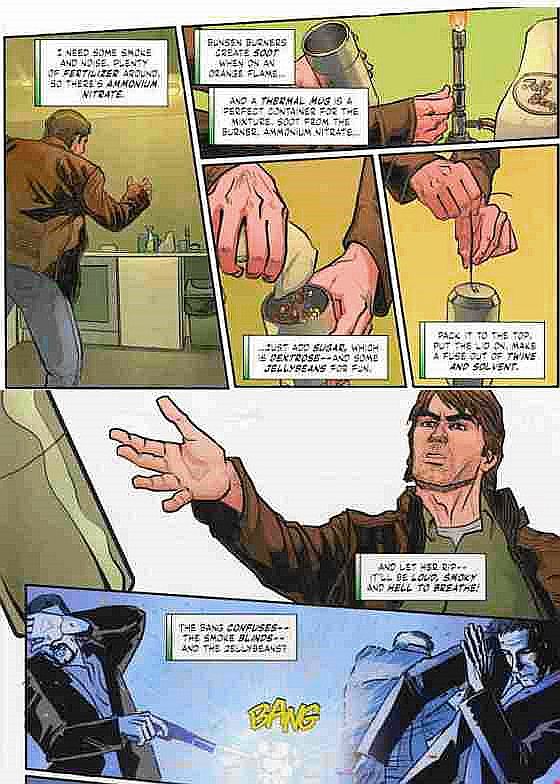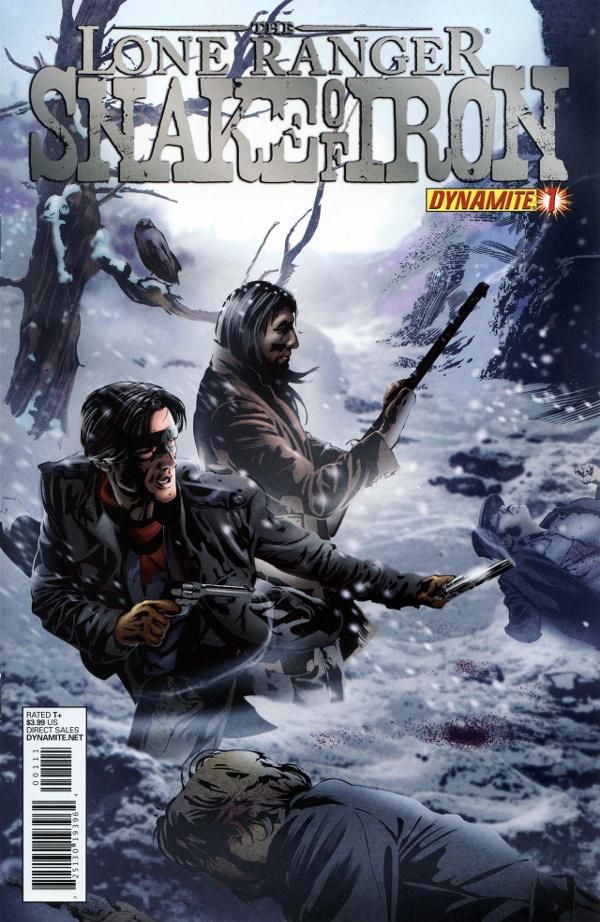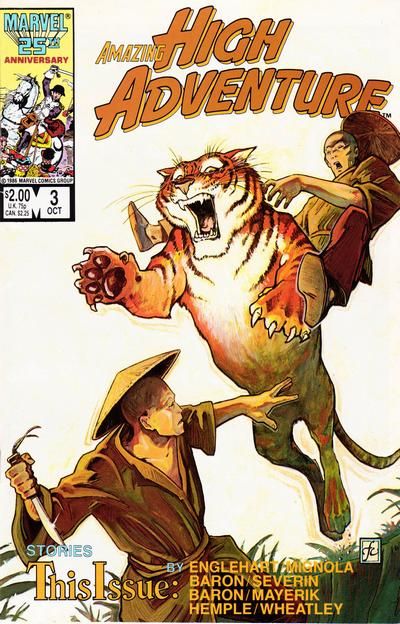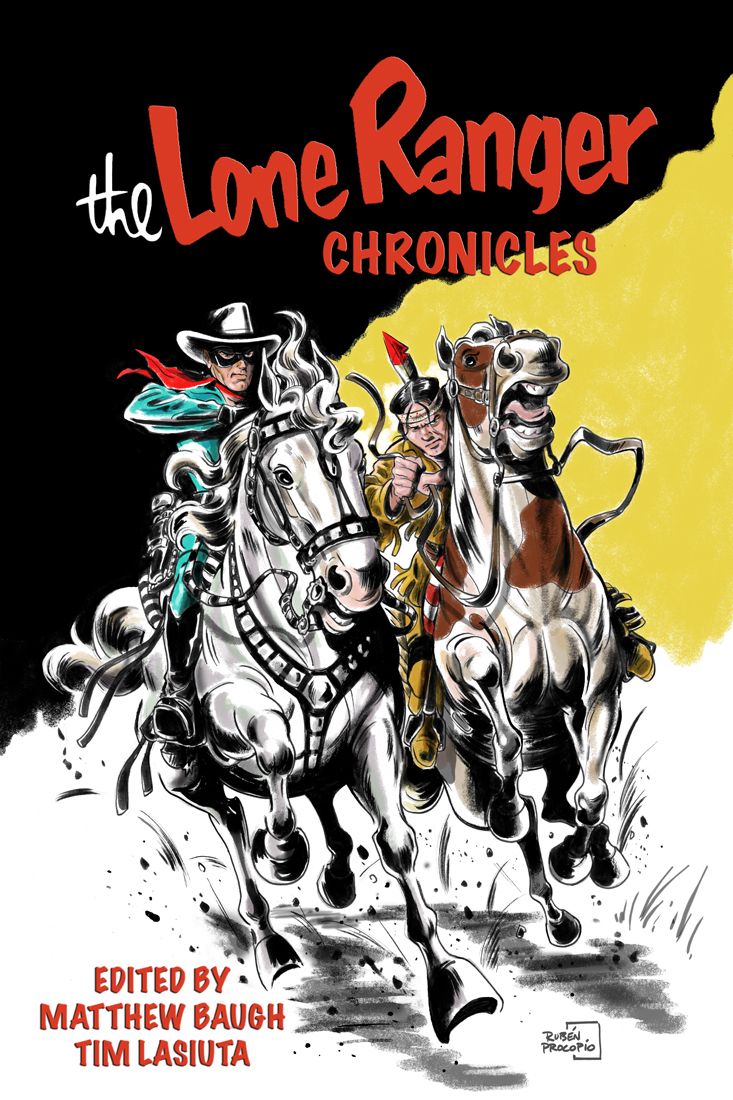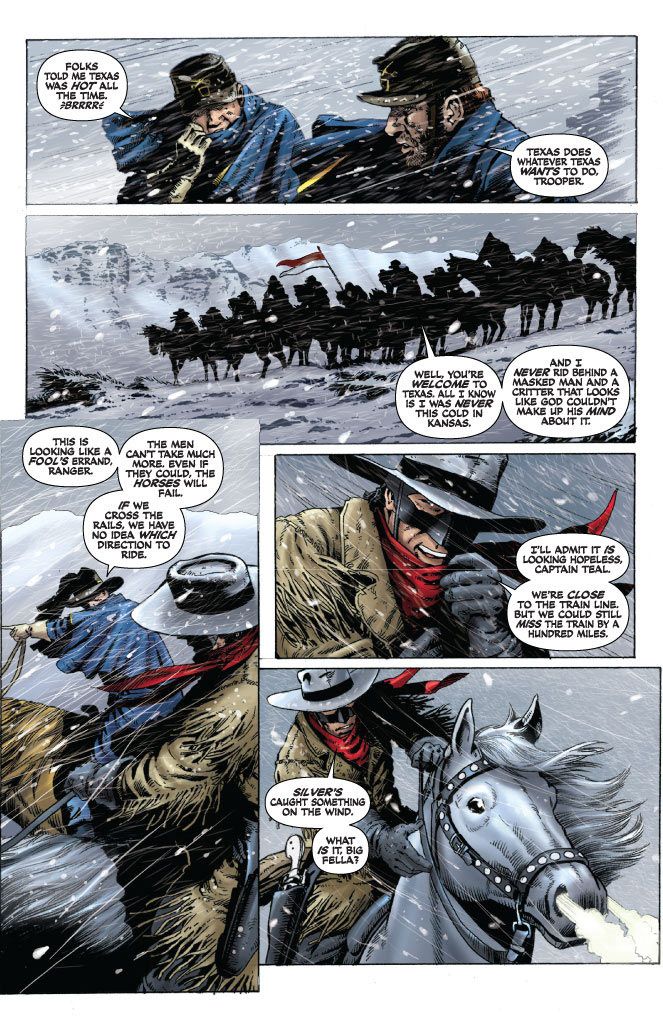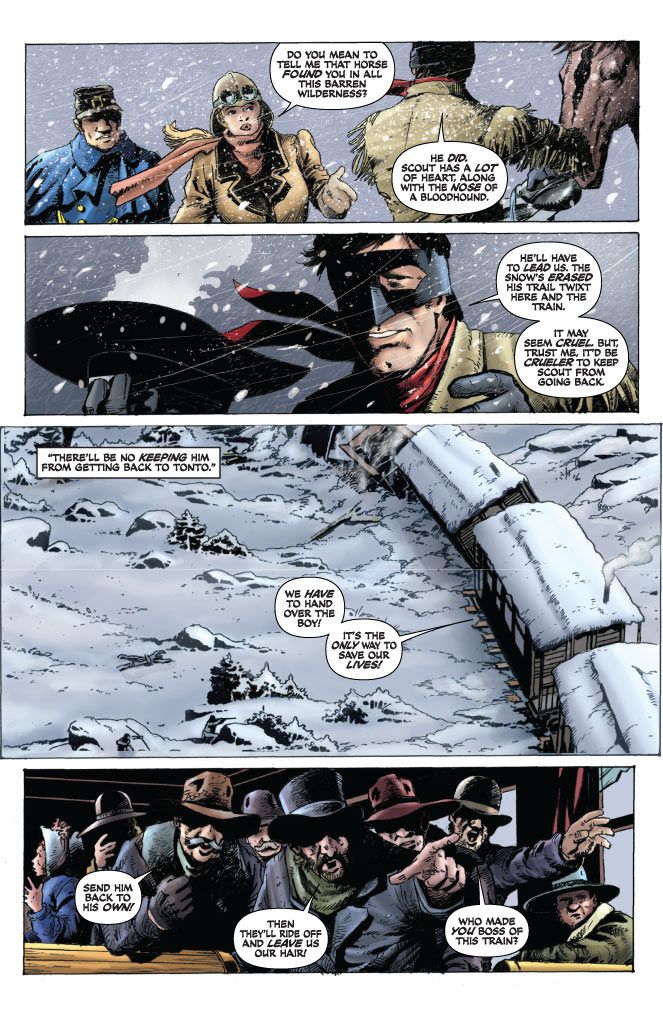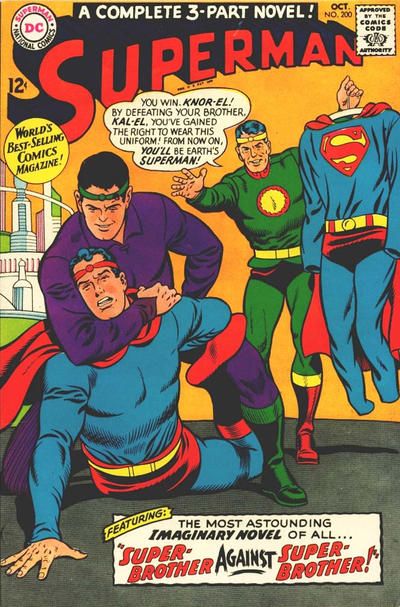As is his habit, Kiel Phegley emailed all of us at CBR asking us to give him our annual best-of-the-year top ten, so that he can edit together CBR's annual top 100 picks from all of us.
And as is my habit, I sat down to do it and got stopped at about six. There's only about ten books on my pull list, period, and I know perfectly well that several fall into the category of "stuff I just happen to like" as opposed to "best of what's out there." I don't read everything that's out there, and of the stuff I do read, only about half is something I'd put on any kind of best-of list. I eventually get it done in time for Kiel to do his tally, but invariably, every year at some point I get stuck for a while at around the halfway point.
I grumbled about this to Julie, who said, "MacGyver! Did you put MacGyver on the list? Because MacGyver is awesome."
I don't know about best of the year, but the new MacGyver book from Image is pretty good.
It's co-written by Lee Zlotoff, who actually created the original television show, and Tony Lee, who's done enough Doctor Who comics to know the key to making a licensed book work. The art from Will Sliney keeps a nice sense of movement and he's doing very well at suggesting Richard Dean Anderson's likeness without getting too photorealistic.
The book ranks about even with a good episode of the show. If you like watching MacGyver on television, you will enjoy reading his adventures in comics.
I'm not a MacGyver fan really-- I started picking this up for Julie-- but I am enjoying it almost as much as my wife does. Between Tony Lee's apprenticeship writing serials for British weekly comics and Zlotoff's experience in network television, what you have is a book scripted by people who don't really do 'decompression' at all, which pleases me. Moreover, Zlotoff also has a fascinating text piece in each issue recounting the process involved in getting MacGyver to the screen in the first place. It's a solid read for the money and I almost never say that about regular monthly comics any more.
I wouldn't call it best of the year, but it's GOOD. I hope we get more books like this from this creative team once this mini-series is done. Recommended.
Another mini-series that has that kind of old-school "Geez, we used to get stuff this good ALL the time" feeling was Lone Ranger: Snake of Iron from Chuck Dixon and Esteve Polls.
First of all, I've said several times that as far as I'm concerned Chuck Dixon is the go-to guy for this kind of story. He knows history and he knows guns and he knows pulp fiction and he can put them all together into a tight comics narrative. (In my perfect world someone would revive High Adventure comics as a Chuck Dixon/Beau Smith/Mike Grell anthology book with cowboys, pirates, and Mack Bolan-style mercenaries alternating as the leads.)
Dixon clearly loves the Ranger-- his contribution to Moonstone's The Lone Ranger Chronicles was one of the best, and best-researched, in that anthology.
So I was very pleased to see him come back to the character. What I love about this is that Dixon's not trying to re-invent the wheel or deconstruct anything. He's just giving us a really good western with the Lone Ranger and Tonto.
Everything a Ranger fan could want is in there-- he makes sure to get in hero moments even for the horses Silver and Scout. But he also bends convention a number of ways: for example, Chuck Dixon knows enough about Native American history to construct a plausible hostage-crisis conflict without having to resort to using 'evil injuns.' He's able to use a group of angry tribal warriors as antagonists without demeaning them.
And the story takes advantage of something the TV show could never have done, but is a common occurrence in Western fiction-- the rough country and the weather are part of the problem. The story takes place in a blizzard, adding to the overall tension.
I'm going on and on about the writing but I should add that Esteve Polls continues to hit it out of the park for me with his artistic take on the proceedings. He really sells the idea of cold and isolation with the trail-riding scenes, especially.
I'm assuming it'll get collected at least in paperback, and I hope you all check it out if you haven't already.
I look at these books and I look at my pull list and I think about the Marvel and DC stuff that gets hailed by critics as brilliant. I mean, I love what Mark Waid is doing on Daredevil and it would appear that he's about to re-invigorate the Hulk's book in the same way... but at the end of the day he's basically just looking at the characters and trying to do justice to them. The big innovation is that there isn't anything innovative. They're just really good Daredevil and Hulk comic-book stories. Sometimes they're even done-in-one.
Now, I think that's AWESOME. Don't get me wrong. I approve very strongly of comics like that.
But dammit, this shouldn't be best-of-the-year, it should be the baseline. This should be the minimum requirement of a comic book, to tell an engaging story well enough that a reader feels like he got full value. Even if it's a chapter in a longer story, it should still have some weight, things should move forward. It's kind of embarrassing to acknowledge the fact that it happens so rarely any more that when we get a superhero series that can manage that, it gets praised to the skies.
Look, I really love that comics are moving into the bookstore market. I am finding that most of my comics reading is done in the trade format these days, in book-sized chunks. Most of them-- certainly anything by Jonathan Hickman or Brian Bendis-- work better that way.
But I also think that I'd prefer a comics landscape where we had more books around like MacGyver and Chuck Dixon's Lone Ranger and the Mark Waid Marvel stuff. Good stories told well that don't just sprawl on and on... and if they do go five or six chapters, well, at least they feel like actual chapters and not just paragraphs. You know, I fell in love with comic books because of what they actually were, not what they could be. I still like seeing a kickass adventure story done in 22 pages...and once upon a time, I could count on it. No longer. Now it's something so rare that when someone comes along and does it at Marvel and DC, it's a breath of fresh air.
Maybe it's just because I came of age in a comics landscape where that was the norm, where a "continued" story was maybe two or three chapters at most.
There's a skill to compression. It's really damn hard to get it done in twenty-two pages, and it takes a real professional eye to get just enough story in there without losing the pacing or crowding out the art.
I don't know. Maybe it is becoming rare enough that the folks that manage it should be considered best of the year. I'm just glad they're still out there at all.
See you next week.




